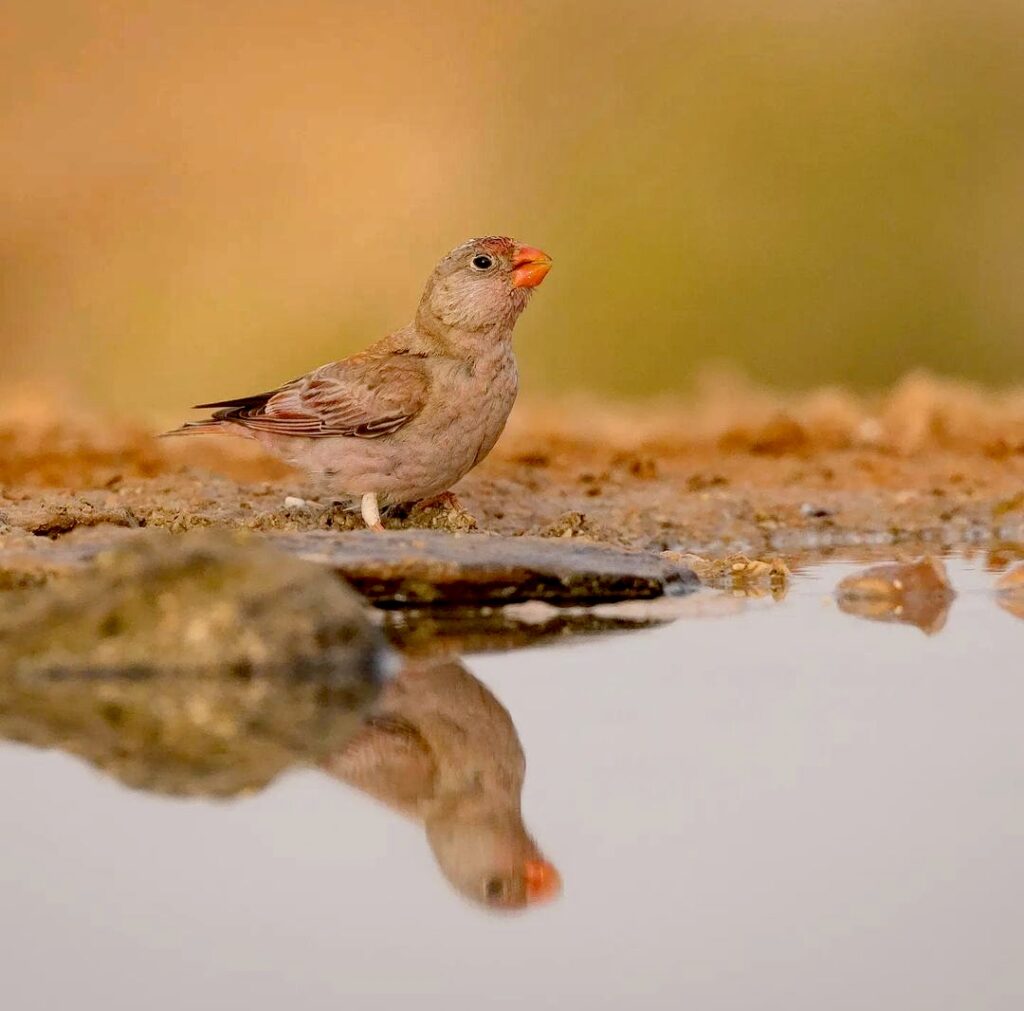TRUMPETER FINCH
The Trumpeter Finch is a distinctive and charismatic bird species
Spotting perched on a rocky outcrop or feeding on seeds in the desert is a rewarding sight for birdwatchers exploring the rugged landscapes of Morocco.
Appearance: The Trumpeter Finch is a small finch with a stout, conical bill and a compact body. It has a pale grayish-brown plumage with darker streaks and markings on its back and wings, while the underparts are paler and more uniformly colored. One of its most striking features is its pinkish-red face and throat, which contrasts sharply with the rest of its plumage.
Habitat: In Morocco, the Trumpeter Finch inhabits arid and semi-arid habitats, including rocky deserts, dry scrublands, and gravel plains. It prefers areas with sparse vegetation and open terrain, where it can forage for food and find suitable nesting sites. It is particularly associated with rocky outcrops and cliffs.
Diet: Trumpeter Finches are primarily granivorous, feeding on a variety of seeds and grains found in their habitat. They forage on the ground, using their stout bills to crack open seeds and extract the nutritious kernels. They may also consume small insects and other invertebrates, especially during the breeding season when protein-rich food is needed for nesting and raising young.
Behavior: Trumpeter Finches are often seen foraging on the ground in small groups or pairs, using their keen eyesight and acute hearing to locate food. They are relatively sedentary birds, with individuals often remaining within their territories year-round. They are well-adapted to their arid environment and can tolerate high temperatures and limited water sources.
Breeding: Breeding typically occurs during the spring and summer months, with pairs establishing territories and building nests in rocky crevices, burrows, or among vegetation. The female lays a clutch of eggs, usually numbering between three to six, and both parents share the responsibility of incubating the eggs and caring for the young.
Conservation: The Trumpeter Finch is not considered globally threatened, but like many bird species, it may face threats such as habitat loss and degradation due to human activities, including agriculture, urbanization, and infrastructure development. Conservation efforts focused on habitat protection, sustainable land management, and monitoring populations are essential for ensuring the continued presence of this charismatic finch in Morocco and beyond.

